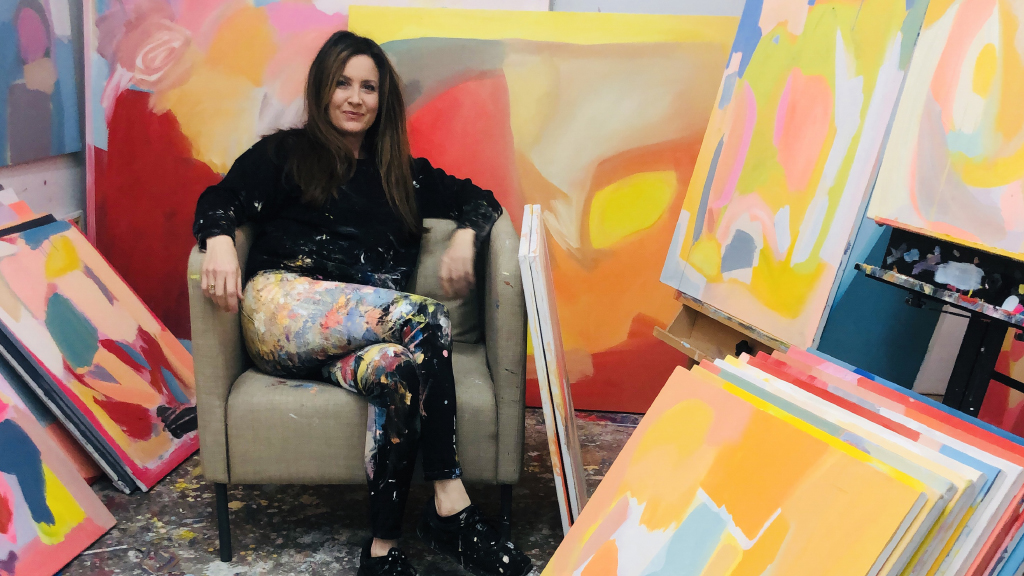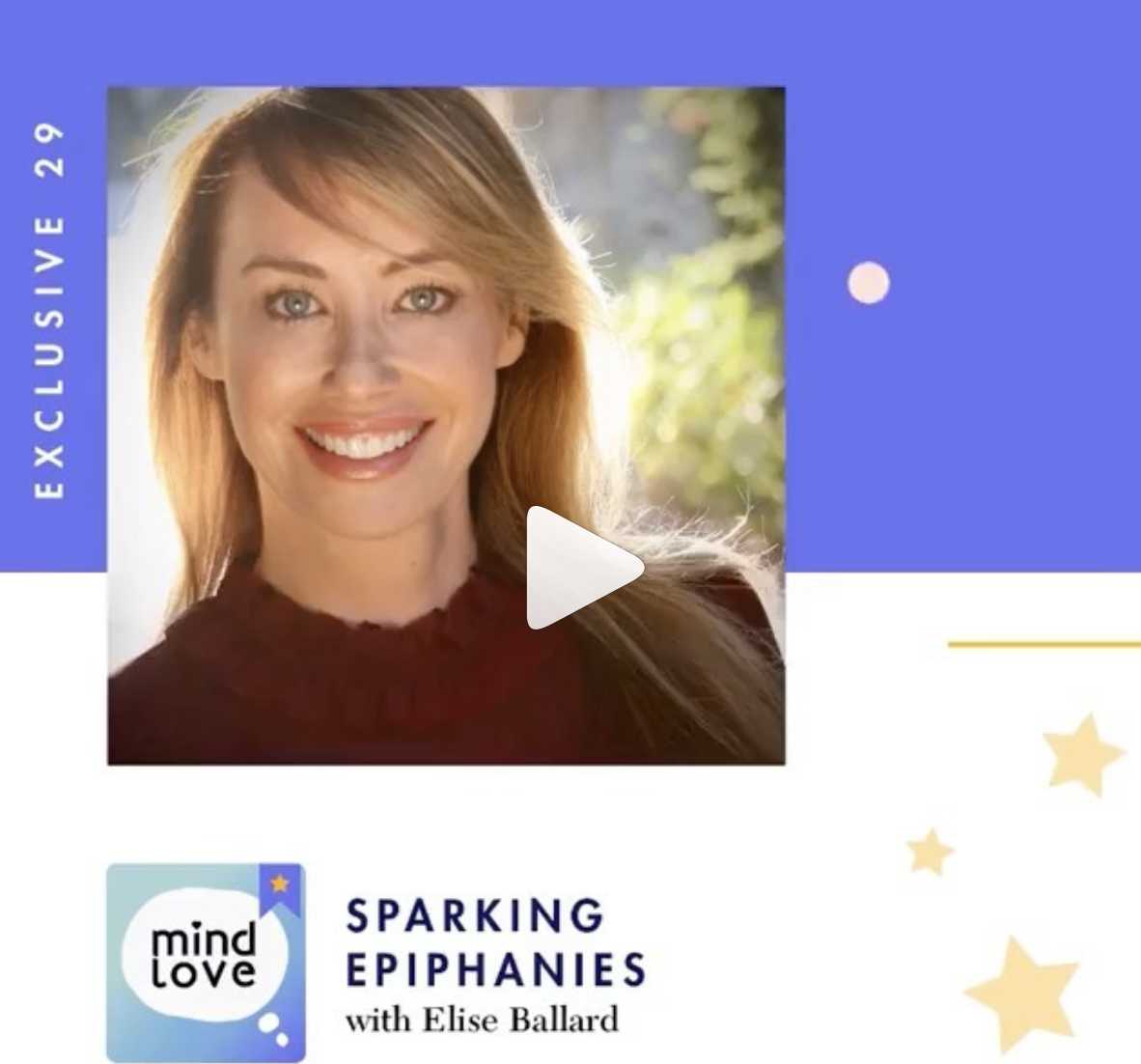
My interview with Esther Perel was such a powerful experience. I loved her epiphany about realizing that it was ultimately her parents that gave her the desire to be a family and sex therapist. She describes growing up in Antwerp, Belgium, after WWII and noticing the differences between the people who were simply surviving and weren’t dead and those like her parents who were truly living and celebrating life after surviving WWII. (Her video interview is at the end of this article, the written version is in the book, and you can follow the link above to her page to learn more.)
You may have heard of Esther’s work over the past several years since this interview—she’s everywhere. She’s been a keynote speaker at many notable conferences including TED and SXSW, has her own podcast called Where Should We Begin, is a columnist for Cosmo, and has another book out now as well as many other podcast interviews with Tim Ferriss. I love this one in particular and wanted to share it with you because it expands on what she told me about her parents in our Epiphany interview.
I absolutely encourage you to listen to this podcast but I’ve also included a piece of the transcript below so you can read it. To me, this further describes the difference of LIVING vs. BEING ALIVE. Her father said the purpose of life is “doing for others.” “Doing for others” is what makes you want to get up and survive another day. It makes it worth living. Then she talks about the epidemic of our times is “isolation,” which, unfortunately, I agree is profoundly true.
Listening to this interview is definitely epiphany-provoking. (Many of Tim’s interviews are. I highly recommend his podcast be on your playlist if it’s not already.) Here’s an excerpt from the transcript of the interview:
***
Tim Ferriss: …You mentioned that your parents were sole survivors (of World War II) in your families, if I heard you correctly. When you look at your parents…and at other sole survivors, what did they credit the survival to?
Esther Perel: Oh, that is a great question. I did get to ask them this question.
My mother, she first spent a year in the woods at age 18, running from farm to farm, hiding in the woods of Poland. And then she was so terrified that she actually surrendered by herself to a labor camp, to a man’s camp. She thought, “If I am in a camp, at least they probably will put me in the kitchens or in the laundry, and I could at least wake up every morning in the same place.” My mother ended up going to nine different labor camps. Labor camps were generally next door to the concentration camps, and as long as you could work, you were in a labor camp.
If you were not selected that morning for transport, you could continue work. But the distinction is often a very narrow distinction. My father was in 14 different camps. The rest of their families were either gassed in Treblinka or in Auschwitz, basically; his family in Auschwitz, her family in Treblinka.
My mother would say it was a combination of premonitious dreams. She was very, very superstitious and she really believed her dreams that would tell her, tomorrow don’t go there, tomorrow be a little bit late there, tomorrow make sure to have an extra layer of newspaper on your feet because it’s going to be really, really cold. She had all these premonitious dreams of her father talking to her and things like that. She would always say, “Chance came first.” My father said that, too.
I think ultimately both of them said, “Chance came first.” And then there was what you did with the chance that was given to you. So there was always a mixture between choice and coincidence; choice and chance. My mother said she always made sure that she was clean, that she was groomed, that she was mending her socks, that she maintained her humanity. That she didn’t allow herself to become dehumanized and degraded because of the way that she was being treated by the Nazis.
My father, when we went to visit Auschwitz, actually ended up telling me a story of a Dutch convoy of women that arrived. He somehow picked a woman out of the crowd and he decided that he would help this woman. The next day the women’s heads were shaven, and he couldn’t even recognize her, so he asked the keeper, “Who is the woman that he had noticed the day before?”
They began some correspondence, which I have no idea how he wrote because he couldn’t write, and I never bothered asking him who wrote for him. But he fell in love with this woman, and he just decided that there were certain things the Germans couldn’t take away from him. They couldn’t take away his feelings or his love, even in the most dire of circumstances.
Then he basically developed this black market in one of the camps where he was with his best friend, where they were for almost a year and a half. He ended up feeding 60 young men who would otherwise have not had enough to eat, and therefore to work, and therefore to survive. He ended up feeding the Nazis, too. So when he got caught with those letters, one of the Germans sent him back to the factories and said,”You’re not staying here.” Factories meant you had one week to live, basically.
But he had been feeding the German guys so well that one of the guys said, “I eat better when you work in the kitchens,” and so he put him back in the kitchen. So my father always said it was a combination of chance and ingenuity, street smarts, and doing for others. Doing for others gave you a purpose to stay alive and to wake up in the morning.
***
If I were doing another Epiphany quote for Esther from her interview with Tim, this would be it:
“Do your part.
The reason I say do your part is because so much of the culture we live in is about doing things for ourselves, enhancing ourselves, pushing ourselves, being more successful.
…But isolation / disconnection is really a curse. It’s a curse of modern life. I think there is no more powerful anti-depressant and nothing that will give us more meaning in life than to know that we matter for others–and that means to do for others.” ~Esther Perel
Another interesting quote might be:
“Think about how to use your street smarts and the chance and ingenuity (aka serendipity) that comes to everyone at some point or another, to do for others rather than only for yourself.”
FOOD FOR THOUGHT: If you listen to Esther’s epiphany story (below) and Tim’s podcast interview with her, think about what your takeaway might be…
ESTHER PEREL’S GREATEST EPIPHANY IN LIFE AS TOLD TO ELISE BALLARD:









